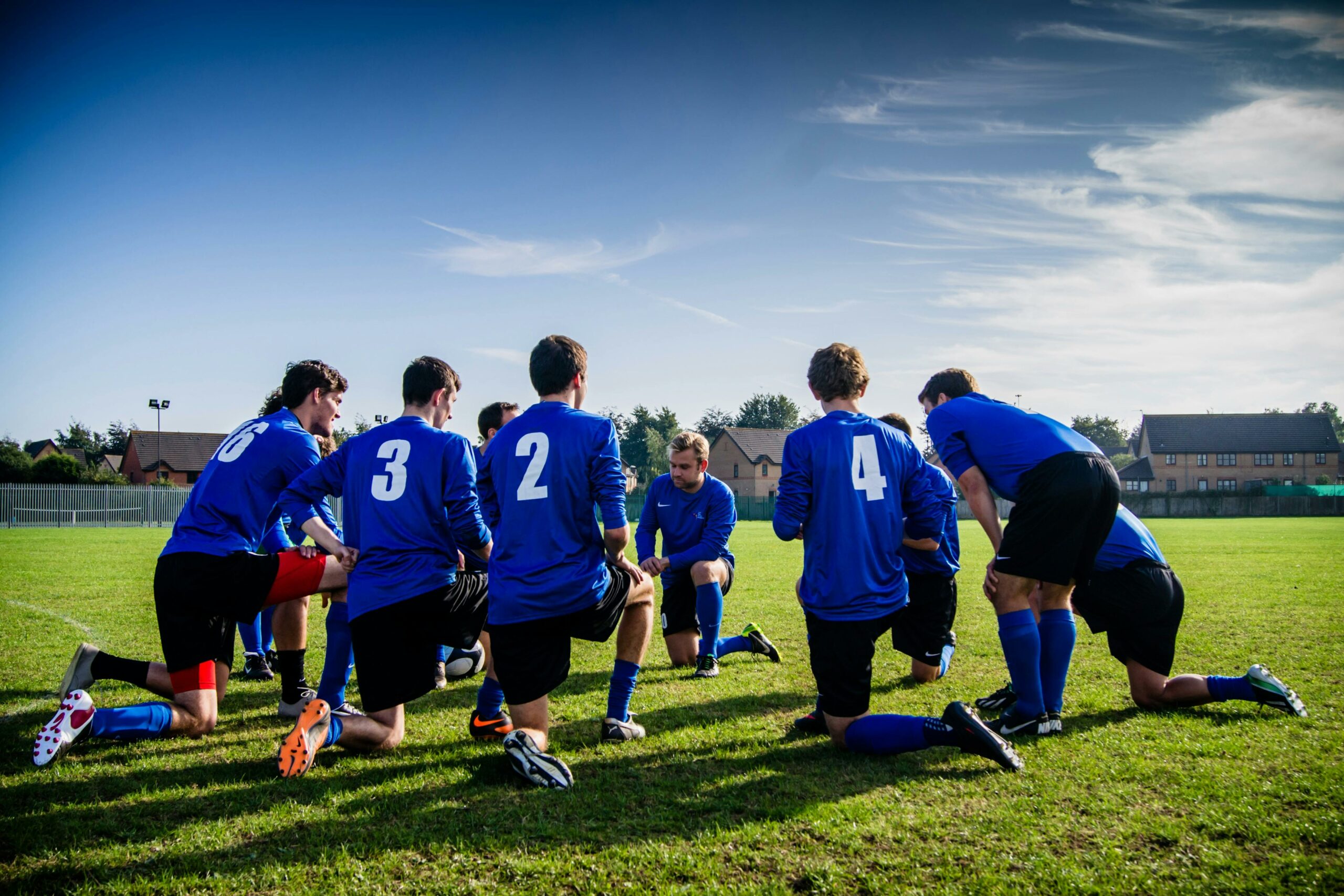Why Football Should Be Part of Student Sports Education

https://www.pexels.com/uk-ua/photo/262524/
Sports hold a strong place in student education. They keep participants active, improve focus, and build character. Why is football important? This is a great option for schools to consider. Adding it to the curriculum can boost health and mental wellness. Soccer builds teamwork and strengthens problem-solving skills. Integrating ball games into school programs supports students in various ways. They gain skills that last long after school. Schools shape well-rounded individuals, and football education contributes to this goal.
Mental and Emotional Well-being
This game reduces stress, increases focus, and supports emotional control. Physical activity supports mental well-being. Studies from the Anxiety and Depression Association of America show that physical exercise reduces stress. Soccer allows youth to release energy and stress in a healthy way.
Football also creates social connections, which support emotional health. Students who play report feeling happier and more connected. Football builds friendships and a sense of belonging. Social support in team sports is valuable during school years. Football gives students a safe space to connect and communicate. This supports their emotional well-being.
Balancing education and sports can challenge students. Modern youth find it difficult to balance training, studies, and assignments. Education demands time and focus, which makes it hard to excel in both areas. For students on athletic scholarships, keeping up academically is essential. They seek assistance in research paper writing from https://papersowl.com/research-papers and its professionals. PapersOwl helps students focus on their sport without losing grades. This support eases mental stress and lightens their load.
Here are mental and emotional football benefits for students:
- Reduces Anxiety. A safe way to release stress.
- Build Friendships. Playing creates strong social connections.
- Boosts Mood. It leads to higher levels of happiness.
Advantages of Football in Sports Education
This sport brings real benefits to students. Playing soccer strengthens the body and sharpens the mind. It keeps bodies active, focused, and improves quick thinking. According to the CDC, children need 60 minutes of physical activity each day. Sports can boost learning effectiveness by helping players meet this goal. Football involves exercise that supports heart health.
Physical Fitness and Endurance
Playing with a ball demands physical strength. It requires players to run, sprint, and move fast. This variety builds strength and endurance. The sport supports good heart health. According to a report from the American Council on Exercise, football can burn 260 calories in just 30 minutes. This is one of the most important football benefits for students. Such activity keeps students fit and manages weight. It also builds muscular strength. Players jump, kick, and sprint, working different muscle groups. This balance in movement supports balanced muscle growth.
Football training improves endurance as well. Players run across long distances during games. It helps students build stamina, which supports health and fitness in daily life. The physical activity also increases lung capacity. This improves breathing and benefits overall health. Training helps youth develop the foundation for a healthy lifestyle.
Teamwork and Cooperation Skills
Soccer is a team sport. It requires each player to work together toward a shared goal. Students must learn to communicate on the field. They trust each other to play effectively. This teamwork teaches students cooperation skills. In real life people must understand how to work in teams. This activity helps people learn to connect with others. People who play together listen to each other. This is one of the benefits of playing football because teamwork on the field strengthens social skills in everyday life.
Each player has a specific role on the field. Each role must work together to win. Players pass the ball, support each other, and make decisions as a team. This coordination teaches students the value of each team member.
Strategic Thinking
Players must decide quickly on the field. This improves decision-making skills. Football encourages us to think ahead and plan moves. Players anticipate the opponent’s moves and react. These skills benefit students in academics. The game requires players to assess situations and react. This teaches them critical thinking skills.
This planning is among the benefits of playing football. Strategic thinking learned on the field applies to school projects or even career planning. Players learn to approach challenges with care. Schools that include soccer help youth build a skill that benefits them in the future.
Building Discipline and Leadership
Players must attend regular practice and stay dedicated. The sport teaches youth to follow rules, be punctual, and commit fully. This discipline benefits students in every part of life. Schools with football programs help them develop good habits. This discipline teaches students to stay responsible and motivated.
Football also builds leadership skills. Team captains, for example, take responsibility for guiding teammates. Players who show leadership in football use this skill later in life. LinkedIn research shows that CEOs and business leaders played team sports in school. These sports taught them to lead, solve problems, and support others. A study shows that 94% of women in executive roles played competitive sports. The sport lets people practice leadership, which is valuable for any career.
Schools that support football education give students a path to gain confidence. Leading in a team teaches to trust their abilities. The sport offers a space where students explore strengths and find their voice. It’s a clear answer to the question of why is football important. People learn to make decisions for the team. Leadership skills learned in football help youth become confident adults.
